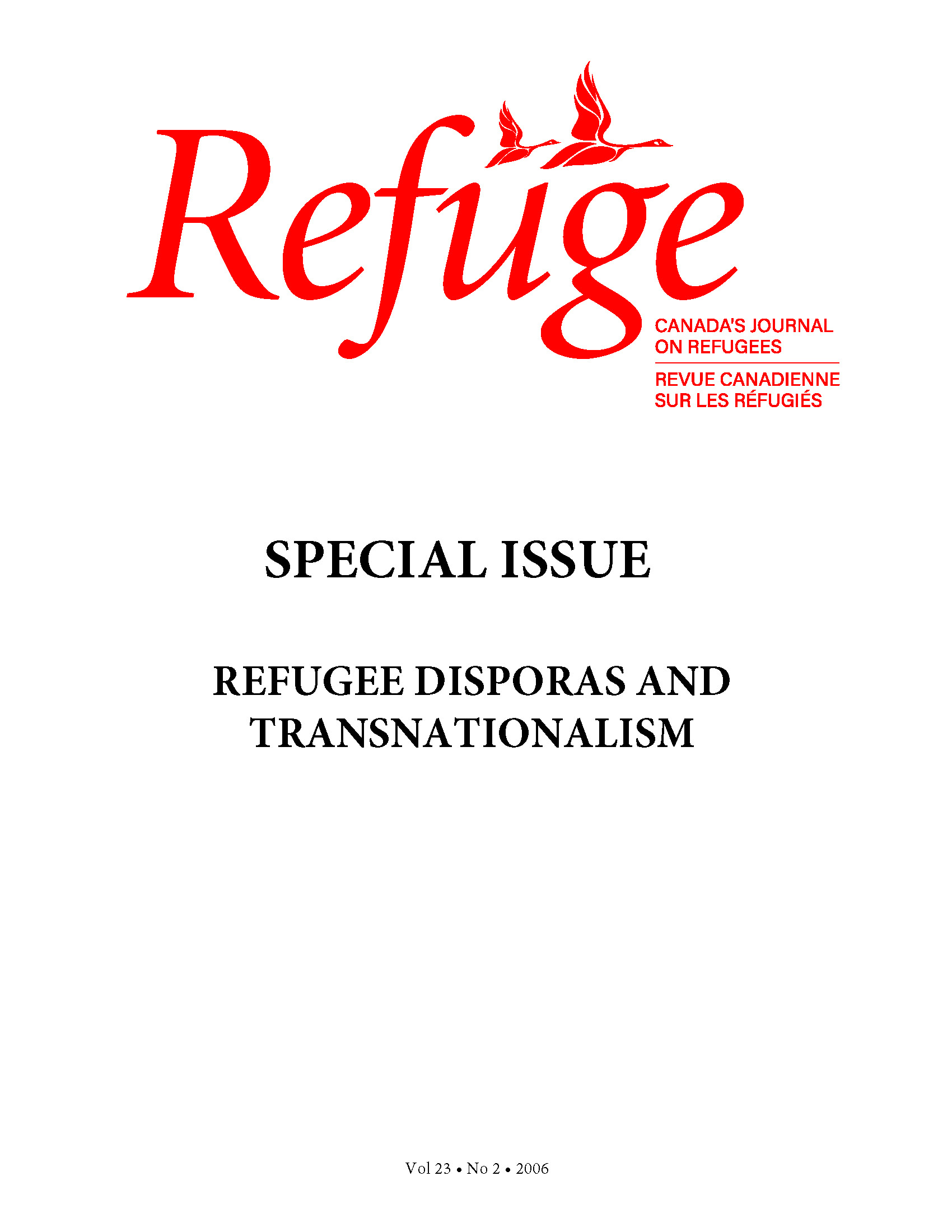The Psychological Impact of Extended Temporary Protection
DOI:
https://doi.org/10.25071/1920-7336.21357Keywords:
Australia, refugees, asylum seekers, temporary protection visa, deterrence, mental healthAbstract
Against the background of the recent international trend of a greater reliance on deterrence measures in managing the flow of asylum seekers, this paper discusses the implementation of the temporary protection visa (TPV) in Australia. It focuses on the psychological impact of the TPV policy on individual asylum seekers and how this unlimited temporary status affects the overall process of settlement. This study is based on personal narratives constructed by individual asylum seekers during one-onone interviews aimed at sketching the mental and psychological manifestations of stressful events in their lives as TPV holders. What is particularly revealing among many of these TPV holders is the fact that their pre-migration traumatic experiences are compounded by a post-migration condition of being in indefinite “temporary” protection. This is further exacerbated by a prevalence of racialized discourses and exclusionary policies advocated by the host government. Past trauma and persecution, combined with present family separation and social exclusion, and further compounded by uncertainty about the future, had resulted in almost chronic states of anxiety and depression among a significant number of TPV holders.Metrics
Downloads
Published
How to Cite
Issue
Section
License
Copyright (c) 2006 Fethi Mansouri, Stephanie Cauchi

This work is licensed under a Creative Commons Attribution-NonCommercial 4.0 International License.
Refuge authors retain the copyright over their work, and license it to the general public under the Creative Commons Attribution-Non Commercial License International (CC BY-NC 4.0). This license allows for non-commercial use, reproduction and adaption of the material in any medium or format, with proper attribution. For general information on Creative Commons licences, visit the Creative Commons site. For the CC BY-NC 4.0 license, review the human readable summary.







